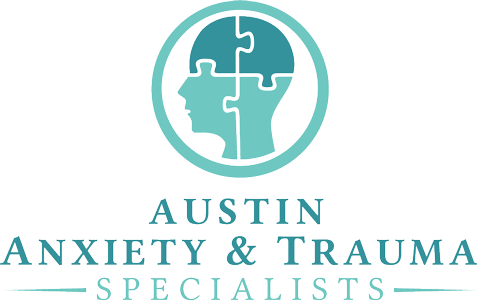For folks with anxiety, the signs of an attack are all too familiar: racing thoughts, racing heart, chest pains, chills or sweats, and breathing feels impossible. So does calming down. Keeping coping tools like grounding techniques in your back pocket can help curtail attacks when they strike.
Grounding techniques are exercises that can help distract you from anxious thoughts and focus on (or “ground” you in) the present. Using these coping tools may help relieve anxiety symptoms like anxiety attacks and overstimulation, or disassociation and painful flashbacks related to Post-Traumatic Stress Disorder (PTSD).
How does grounding work?
To understand grounding, we have to understand what prompts anxiety attacks. When we start ruminating over distressing thoughts, our brain goes into “fight or flight” mode and pumps us up with adrenaline. Which is great for emergencies, but not so great when you’re on a date and your brain’s convincing you in a full-length TED Talk that the barista hates you because you responded to “enjoy your coffee” with “you too”.
While you’re stressing over something non-threatening, your body’s going into defense mode—making your heart race and putting you on edge. Your brain is like an overprotective mama bear, and she just needs to know you’re safe. Resetting your focus can signal to your brain that you’re okay.
Grounding exercises use concentration on the senses and visualization to help shift your attention to the present. As your tether to reality reels you back to a safe place, you interrupt the mama bear’s protective response and can begin to feel calm again. Though grounding does not erase problems, it can offer temporary relief.
Read: 8 Ways to Incorporate Mindfulness Into Your Daily Life
Grounding Techniques
We’ve outlined 12 exercises for you to try in three categories: physical, mental, and soothing. Coping tools are personal, and what works for you may not work for others. It’s best to test out a few when your stress levels are low to familiarize yourself with the process so you’ll know what to do when an attack strikes.
Physical Grounding Techniques
Bring your mind out of a vicious cycle. These techniques help boost awareness of your physical sensations instead:
Use the 5-4-3-2-1 method
Use each sense to corral your thoughts back to the present. Take your time as you notice:
- five things you can see
- four things you can feel
- three things you can hear
- two things you can smell
- one thing you can taste
Observe an object
Keep an object of personal value with you in case of an attack, or choose any trinket near you. Hold your object and:
- notice its patterns, colors, and shadows
- feel its texture, weight, and temperature
- smell it and name the scent
- listen to the noise it makes or how it sounds when you touch it
- recall a memory about it
Breathe
Regulating your breathing with techniques like soft-belly breathing or box breathing may help regain a sense of control and relieve a triggered fight or flight response.
Sit in a grounding chair
Select a cozy, quiet place to sit. Observe how your arms, legs, back, and neck rest on the chair. Notice its material, texture, and softness or firmness. As you push your limbs into the chair, imagine a heavy energy flowing from your head, down your shoulders, your legs, into your feet, then finally into the ground.
Move your body
Sometimes we just don’t have the patience to sit still and observe every little sensation, and that’s okay! Channel your energy into stretching, exercising, dancing around with music, or cleaning if that’s your thing.
Mental Grounding Techniques
Overthinking? Try these exercises to help distract your mind from ruminating thoughts.
Recite something
Aloud or mentally, recite a poem, speech, movie scene, mantra, scripture, or equation you’ve memorized. Or memorize one!
Brain train
Memory games and brain-challenging apps can be an engaging distraction. Try this list of apps that exercise your brain, or these apps to help manage anxiety.
Back up
Here’s another mental challenge that requires concentration. Do something backward, like:
- Count down from 100 by 3s
- Read a book page backward
- Recite something you’ve memorized backward
- Organize something you own in reverse alphabetical order
List in categories
Challenge yourself to list as many things as you can in a few categories. For example: movie directors, African countries, Renaissance scientists, superheroes, Greek gods, onion variants, or take a page from The Sound of Music and list your favorite things!
Soothing Grounding Techniques
In times of emotional distress, treating ourselves with kindness goes a long way. These self-soothing tools promote positivity, comfort, and good vibes.
Picture a person
Visualize a person you love—someone you feel comfortable around, look up to, trust, admire, or feel supported by (They can even be fictional!). Imagine them in the room with you and observe with your senses:
- What are they wearing?
- What do they smell like?
- What are they saying to you, and what does their voice sound like?
Music
Find a grounding playlist you like or make your own. If your goal is to relax, a study found that classical, soft pop, and some types of world music are most effective. Why? They have a slow beat without surprises and a simple melody.
Your favorite song might not be considered calming, but that doesn’t mean it can’t help ground you. As you listen, pay attention to each sound and let the lyrics hit you like it’s your first time listening.
Read: 4 Truths About Trauma Stranger Things 4 Gets Right
Mindful meditation or prayer
Many people find solace in connecting with something greater than themselves. Meditation or prayer can help people who are spiritual or religious quiet negative thoughts and soothe difficult emotions.
What’s next
Grounding doesn’t eliminate problems. Painful memories, toxic relationships, fear of the future, and other stressors don’t magically go away—as much as we wish they would. The right techniques for you can only temporarily distract you and alleviate the intensity. Once you’re calm (and ready) you’ll need to address what you’re feeling.
And we know how hard that can be. If anxiety attacks keep interrupting your life, consider seeking professional treatment.
Our therapists at Austin Anxiety and Trauma Specialists offer online counseling to all residents of Texas and in-person sessions at our Austin branch. Book a session with us today and we’ll match you with a therapist who can help you find the relief you deserve.






